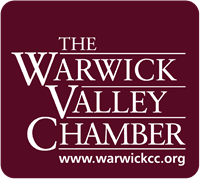Launching a business is a transformative moment — one that marks the shift from idea to action. Whether you're opening a coffee shop on Main Street or starting a consulting firm from your garage, getting it right from the start makes all the difference. This guide walks you through key steps to start your venture locally and set it up for sustainable growth.
Step-by-Step: Starting Your Local Business
-
Clarify your idea and audience
-
Define what you’re offering and who it’s for.
-
Talk to potential customers. Use community boards, local surveys, or Facebook groups.
-
-
Choose your business structure
-
LLC, sole proprietorship, or corporation? Each has tax and liability implications. Check local Chamber of Commerce resources for guidance.
-
-
Register your business name
-
File with your city or state and secure a domain name online.
-
-
Identify your license and permit requirements
-
Every business needs the right paperwork. Requirements differ by location and industry. A business license report can help clarify what's required for your specific situation and avoid compliance headaches early on.
-
-
Set up your finances
-
Open a business bank account, choose accounting software, and explore bookkeeping services like Wave.
-
-
Pick your location (physical or digital)
-
Even if you’re home-based, ensure your zoning and signage are permitted locally.
-
-
Build a local visibility strategy
-
Get listed on Google Business Profile, Yelp, and local directories.
-
Consider joining your local Chamber of Commerce to boost legitimacy and networking.
-
Legal & Licensing: Don’t Skip the Paperwork
New business owners often overlook how nuanced local regulations can be. A food truck may need health permits, while a home-based designer might only need a zoning variance. Identifying the full list of licenses and permits early prevents delays, fees, and legal risks.
That’s where a business license report comes in — it consolidates all your required forms, filing instructions, and timelines based on your city, industry, and entity type. Reviewing business license report pricing early can help you streamline this process instead of piecing it together across multiple agency sites.
Planning Table: Key Startup Considerations by Stage
|
Startup Phase |
What to Focus On |
Example Tools / Resources |
|
Business Planning |
Idea validation, naming, structure |
SCORE, LivePlan, Bplans |
|
Legal Setup |
Entity formation, EIN, permits, insurance |
SBA.gov, LegalShield, business license report |
|
Financial Readiness |
Budgeting, banking, software, merchant accounts |
QuickBooks, Mercury, Stripe Atlas |
|
Local Visibility |
Local SEO, map listings, press mentions |
Google Business, Podium |
Common Questions: Local Startup FAQs
What’s the cheapest business structure for a solo founder?
A sole proprietorship is often the least expensive, but it doesn’t offer personal liability protection. Many choose an LLC for added protection and flexibility.
Do I need a local business license if I work from home?
It depends on your city’s zoning laws and the nature of your work. Some cities require a home occupation permit.
Where can I find funding to start?
Start with microloans, local pitch contests, or platforms like Kiva and SBA microloan programs.
How do I get customers locally?
Focus on local search (Google Maps, Yelp), community events, and partnerships. Chambers and Main Street associations are great entry points.
Bullet List: Top Tips for Local Business Success
-
✅ Start small and test demand before investing heavily
-
✅ Focus on one clear offer first
-
✅ Register with your city and open a business bank account early
-
✅ Prioritize visibility: local listings, signage, partnerships
-
✅ Join a Chamber or local biz group for built-in referrals
Streamlining Startup Red Tape
If you're feeling overwhelmed by all the paperwork and permit hunting, consider using Doola. It’s a compact startup platform designed to handle entity setup and banking — ideal for solopreneurs or digital-first founders. While not a fit for every type of business, it can speed up your setup if you're going lean and fast.
Start Local, Grow Confidently
Launching a business in your community means embedding your vision into a real, local ecosystem. Done right, it becomes more than just a venture — it becomes a local institution. Invest time upfront to set the right legal, financial, and visibility foundations. It pays off in trust, traction, and longevity.
Discover the vibrant business community of the Warwick Valley with the Warwick Valley Chamber of Commerce. Join us today and watch your business thrive!This Hot Deal is promoted by Warwick Valley Chamber of Commerce.

